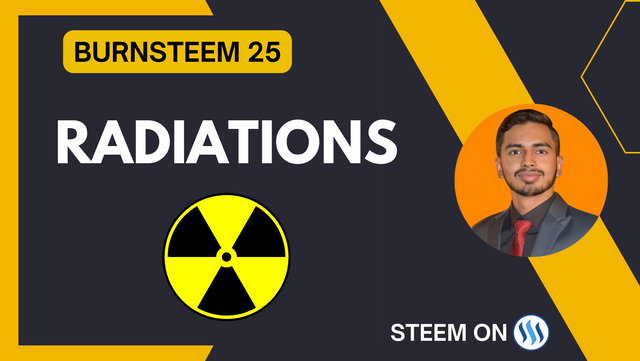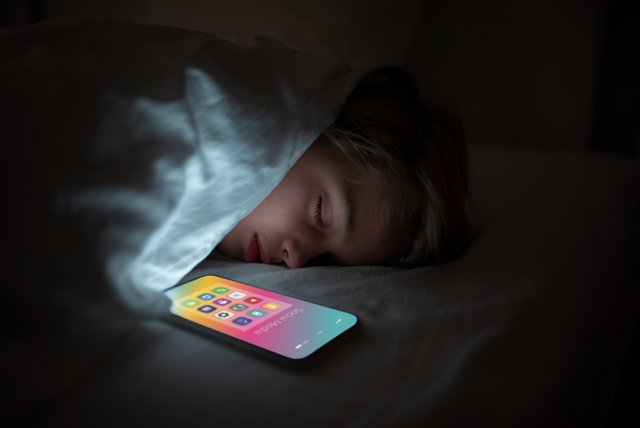
Radiation consists of energy waves or particles, often imperceptible to the naked eye, but they do affect us. Depending on its wavelength, radiation might be visible or invisible. Our eyes can only detect light within a specific wavelength range. Some radiation sources, like sunlight, are natural. However, radiation can also be artificially produced, like x-rays. Both types of radiations impact us. You might've heard of ultraviolet radiations. These are invisible parts of sunlight and can be harmful to our eyes and skin.

There are three common types of radiation:
Alpha radiation:
Originates from radioactive atoms. It's not very penetrative, posing risks only if it enters the body.
Beta radiation:
Also emitted from atoms but is more penetrative than alpha radiation, affecting both outside and inside the body.
Gamma radiation
The most powerful and penetrative of the three. It's particularly dangerous due to its ability to penetrate matter easily.
Regarding the sources of radioactivity, it's probably a topic best suited for science students, given its complexity. But to put it simply, radiations are all around us, be it visible or invisible. The sun is the primary source of natural radiation, whereas man-made radiations exist on Earth, especially around nuclear reactors or sites where nuclear experiments have taken place.

Indeed, not all radiation is harmful. It's only detrimental in excessive amounts. As they say, too much of anything is bad, and this is especially true for radiation.
Sunlight is a form of radiation. Without it, our world would be plunged into darkness, making life impossible. Moreover, sunlight provides us with essential Vitamin D.
Then there are X-rays and CT scans used by doctors. These rely on radiation to provide insights into our body's internal structures.
Mobile networks and Wi-Fi function via radiowaves, and satellites that offer GPS, TV channels, and the internet are all radiation-dependent.
Microwaves, which heat our food quickly, are another boon of science.
Nuclear energy operates on radiation. We can harness it to generate electricity or, sadly, use it as a weapon.
Controlled radiation is now even being used to treat cancer. Its directed doses can kill cancer cells, potentially saving lives. Radiation also has numerous industrial and research applications. The key is using it responsibly. With caution, radiation can be more of a friend than a foe.
Like I mentioned earlier, while radiation can be beneficial, if not used correctly, it can also be harmful. Some radiations, such as x-rays and gamma rays, are so potent that they can damage body cells and organs. Overexposure to x-rays can even cause genetic mutations, affecting future generations. That's why it's advised that pregnant women avoid radiation exposure.
Moreover, prolonged exposure can lead to burns or skin damage. Over sunbathing, for instance, can cause skin burns due to the sun's radiation. UV radiation can also damage our eyes, potentially causing cataracts or even blindness if the exposure is too high.
Truth be told, modern devices, be it our mobile phones, laptops, tablets, or TV screens, do emit radiation. They produce electromagnetic radiation, which, if not managed well, can be harmful.

Mobile phones, which most of us use extensively, are particularly concerning. Many sleep with their mobiles close by, which isn't advisable. Laptops emit radiation, too, through their screens and Wi-Fi signals. Tablets and TV screens can contribute to eye fatigue and headaches.
To minimize the risks, I personally use my phone in dark mode and switch on 'eye comfort mode' at night. I've set my laptop to automatically turn on its 'night light' setting when it gets dark. For those spending significant time in front of screens, glasses that filter harmful UV and blue light are available and can be a good investment. However, the best way to ensure safety is by limiting screen time. After all, our eyes are priceless.

Dear friend Thank you for sharing your Quality Blog with our community. Your Post Information has been given below:
Please endeavor to always vote on atleast 10 articles on daily basis so as to give your maximum support to others
Try to engaged with other user's posts through commenting and interact with others by replying.
Much regards : @solaymann
Downvoting a post can decrease pending rewards and make it less visible. Common reasons:
Submit
Hola amigo, interesante post, muy bien desarrollada, fácil de entender.
Como dices, la radiación puede ser tan buena como mala. Parece curioso, y es un claro ejemplo de lo anterior, que la radiación dirigida y bien equilibrada puede destruir el cancer y ayudar en em tratamiento de esta enfermedad, pero también es bien conocido el papel que puede tener la radiación en la aparicion de cáncer.
Saludos, gracias por la mención.
Downvoting a post can decrease pending rewards and make it less visible. Common reasons:
Submit
Thank you for stopping by my post and leaving a thoughtful comment. 😊
Downvoting a post can decrease pending rewards and make it less visible. Common reasons:
Submit
Oh my word, you always find the "not so normal" contests to write about.
There is never a dull moment with you behind the pen.
Radiation!
I had a friend who went through a bad patch. Her hair was falling out, she didn't want to eat, and she felt tired all the time.
After numerous tests, it was discovered that the door of her microwave was not sealing properly, and she was using it all the time. She believed in hot milk with their coffee and tea, and while warming up the milk, she always stood in front of the microwave, waiting.
Best wishes for the contest, and thank you for the invitation.
Downvoting a post can decrease pending rewards and make it less visible. Common reasons:
Submit
Oh, esta experiencia de su amigo es impresionante, un aparato de uso muy frecuente y no sabía el daño que le estaba ocacionando.
Muy interesante su aporte en el comentario. Como siempre, un comentario inteligente.
Creo que podria interesarle este corto video de 3 minutos, donde hablan del describimiento del horno microondas. Saludos, buen fin de semana @patjewell. (El video está en inglés ).
Downvoting a post can decrease pending rewards and make it less visible. Common reasons:
Submit
Oh wow!!! Thank you for sharing!
Another discovery to show that there is always a human brain behind the microwave. Even as far back as 1945 (•ิ‿•ิ)
Downvoting a post can decrease pending rewards and make it less visible. Common reasons:
Submit
Haha, I'm glad you enjoy my choice of "not so normal" topics! 😄 But seriously, wow, that's quite the story about your friend. I hope she's doing better now and maybe has a shiny new microwave with a super-sealed door.
Downvoting a post can decrease pending rewards and make it less visible. Common reasons:
Submit
Unfortunately, they immigrated to the States, and in the process, we lost contact.
I suppose that was another good reason for her to get rid of it. She would not have had the place to pack it. (•ิ‿•ิ)
Downvoting a post can decrease pending rewards and make it less visible. Common reasons:
Submit